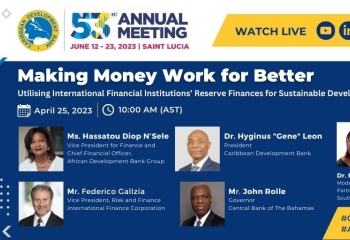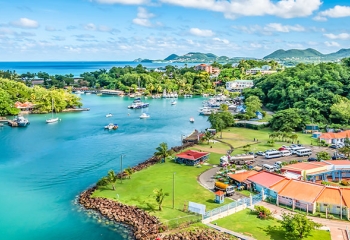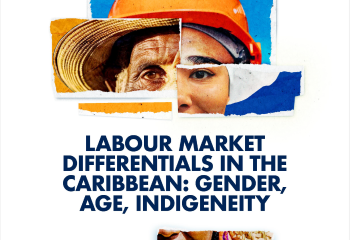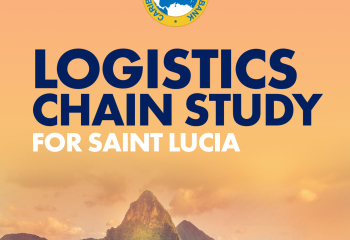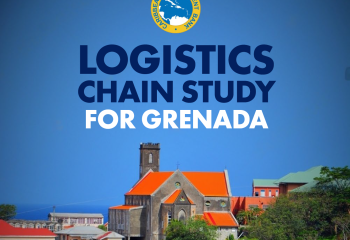Opening Remarks: Climate Finance in the Americas Meeting
First let me say what a pleasure it is to return to the Bahamas. I still recall vividly my trips to New Providence and the Family Islands as mission chief while at the International Monetary Fund and I am very keen to retrace my steps – though this current trip is too short to permit such. I do however remain very grateful to the Government and people of Bahamas for their ready and enduring hospitality and warmth. Equally, Prime Minister I commend your visionary leadership in convening and hosting this event. In so doing, I beg your indulgence in singling out your team in Washington, led by Ambassador Neymour, who has been a passionate advocate of the regional cause and the pivotal role the OAS must play.
This meeting could not have been held at a more appropriate time or in a more appropriate place. In terms of timing, we are on the eve of COP28 and the global stock take, set against the backdrop of the findings of the Intergovernmental Panel on Climate Change’s Sixth Assessment Report which concluded that on the present trajectory we will fail to limit global warming to 1.5 degrees Celsius above pre-industrial temperatures by the early 2030s. As a consequence, scientists have signalled that climate disasters will become so extreme that people will not be able to adapt. Relatedly, this meeting is taking place in The Bahamas where Bahamians can bear witness to what has now become the precarious and perilous life on the frontline of climate change. With 80% of the land lying less than 1-1.5m above sea level, Bahamians face acute vulnerability to the most disastrous effects of sea-level rise and storm surge due to hurricanes. In fact, over the last 20 years, the Bahamas experienced 14 major catastrophes, mainly hurricanes, that resulted in 400 fatalities, affected 50,000 individuals, and racked up over USD6.7 billion in damages. Similar statistics can be easily mirrored across the 19 borrowing member countries of the Caribbean Development Bank (CDB).
In outlining the vision for his presidency of COP28, Dr Sultan bin Ahmed Al Jaber identified paradigm shifts necessary to deliver on the pillars of the Paris Agreement, one of the most critical being the need to “transform climate finance, by delivering on old promises and setting the framework for a new deal on finance”. We at CDB could not have agreed more with this fundamental call to action. With every disaster, every extraneous shock, we in the Region have to pick ourselves up, dust off ourselves, and start again – and we must do so within a financial ecosystem that does not account for or recognise our vulnerability. My friends, the paradigm shift called for warrants that we see sustainable development as a function of resilience – which essentially is the ability to recover as quickly as possible from a shock and ensuring the pre-shock development momentum is not lost. A key element of building that resilience is a financial ecosystem that can provide access to adequate and affordable financing for mitigation, adaptation, and disaster preparedness, all of which are essential to the climate crisis response.
Thankfully the global community has begun to address the issue of conditions of access. With the advancement of the development of the Multidimensional Vulnerability Index, we are now recognising vulnerability and net resilience as a starting point of a broader concept that importantly goes beyond changes in gross domestic income as an indicator of development status. CDB fully supports this work and in fact we are using it as a basis to derive a framework for internal resilience capacity that would ultimately allow for a recovery duration adjustor that can determine the quantum and type of resources needed to embed resilience.
The recommendations of the G20 Capital Adequacy Framework Review seek to increase the quantum of resources by increasing the lending capacity of Multilateral Development Banks (MDBs). CDB, with the assistance of Lazard, is working to operationalise innovative and targeted ways to implement new balance sheet solutions that would enable us to support the cushioning of disaster-related shocks and provide financing tailored to our members’ needs and challenges. By unlocking new equity funding, previously untapped by MDBs, and using it to provide financing in the form most adapted to Small Island Developing States and other vulnerable states, CDB would be in a position to provide relief to distressed, adversely hit countries and lessen government debt burden when needed. This CDB initiative, a project still in development, would allow member countries access to new funding embedded with contingent clauses, and advance the democratisation of such clauses, which would be beneficial to both low-income and vulnerable countries.
In addition, in collaboration with a consortium of MDB partners we have submitted a bid to host the Secretariat of the Santiago Network on Loss and Damage. If successful, this will position us to streamline access to financial and technical assistance for climate-related Loss and Damage and leverage collective knowledge, networks, and resources to provide direct support to countries like The Bahamas, whose recovery after the Category 5 fury of Hurricane Dorian in 2019 could have benefited from this type of financing. Buoyed by the political endorsement we received from the CARICOM Heads of Government at the 50th Anniversary Meeting, we continue to make the case to host the Santiago Network ahead of the decision point that will take place at COP28 in Dubai. I use this opportunity to urge for your collective support, especially as we go into the final meeting of the UNFCCC Transition Committee on Loss and Damage, scheduled for October 17 – 20 in Aswan, Egypt.
Colleagues for too long our countries have been lurching from crisis to crisis, borrowing money to recover from each catastrophe, all the while accumulating additional debt and widening the distance to the targets we have set for the sustainable development goals. That is not a recipe for success – which we boldly define as resilient prosperity. We must reimagine societies as ecosystems, founded on principles of social, climate, and economic justice, where each citizen has an opportunity to thrive, not merely survive. This is the re-casting we need to embrace to create the future we all deserve.
I strongly urge and encourage us to use this meeting to focus on ways in which we can build partnerships that facilitate productivity, knowledge transfer, technology transfer, facilitate sharing experiences to mobilise and deploy the resources we need to design the future we want. The global stocktake must go beyond a reflection of “where we are”. It has to deliver “where we want and need to be”.
Thank you.

